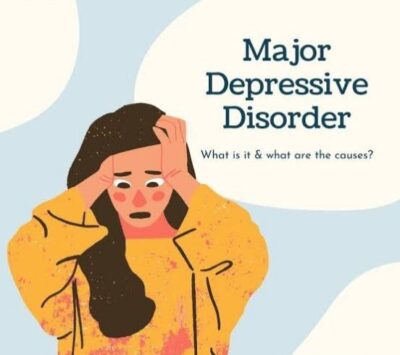Understanding Depressive Episodes: A Guide to Recognizing and Coping with Depression
Depression is a common mental health disorder that affects millions of people worldwide. While it’s often misunderstood, depression is a serious condition that can have a significant impact on an individual’s daily life, relationships, and overall well-being. In this article, we’ll delve into the concept of depressive episodes, explore the signs and symptoms, and provide guidance on how to cope with this debilitating condition.
What is a Depressive Episode?
A depressive episode is a period of two weeks or more where an individual experiences a range of symptoms that are severe enough to interfere with their daily life. According to the Diagnostic and Statistical Manual of Mental Disorders (DSM-5), a depressive episode is characterized by the presence of five or more symptoms from a list of nine, which must include either feeling sad or empty most of the day, or loss of interest in activities that were previously enjoyable.
Common Symptoms of Depression
Depressive episodes can manifest in various ways, but some common symptoms include:
– Persistent feelings of sadness, hopelessness, or emptiness
– Loss of interest in activities that were once enjoyable
– Changes in appetite or sleep patterns
– Fatigue or lack of energy
– Difficulty concentrating or making decisions
– Irritability or mood swings
– Physical symptoms such as headaches, stomach problems, or chronic pain
Causes and Triggers of Depressive Episodes
While the exact causes of depression are still not fully understood, research suggests that a combination of genetic, environmental, and psychological factors can contribute to the development of depressive episodes. Some common triggers include:
– Traumatic events such as the loss of a loved one, divorce, or job loss
– Major life changes such as moving to a new home or changing jobs
– Chronic stress or anxiety
– Certain medical conditions such as chronic illness or pain
– Substance abuse or addiction
Coping with Depressive Episodes
Living with depression can be challenging, but there are many ways to manage and overcome depressive episodes. Here are some strategies that may help:
– Seek professional help: Consult with a mental health professional, such as a therapist or psychologist, who can provide guidance and support.
– Practice self-care: Engage in activities that bring you joy and help you relax, such as exercise, reading, or spending time with loved ones.
– Maintain a routine: Establish a daily routine that includes regular meals, sleep schedules, and physical activity.
– Stay connected: Build strong relationships with friends and family members who can offer emotional support.
– Challenge negative thoughts: Practice cognitive-behavioural therapy (CBT) techniques to help you reframe negative thoughts and develop a more positive outlook.
Conclusion
Depressive episodes are a common experience for many people, but with the right support and treatment, it is possible to manage and overcome this condition. By understanding the symptoms, causes, and triggers of depression, individuals can take steps to reduce their risk of developing depressive episodes and work towards recovery. Remember that seeking help is the first step towards healing and regaining control over your life.
References:
https://www.who.int/news-room/fact-sheets/detail/depression
https://www.nimh.nih.gov/health/topics/depression
https://www.psychiatry.org/patients-families/depression/what-is-depression
Websites:
Britmed Healthcare: https://britmedhealthcare.co.uk/
Nightingale Hospital: https://www.nightingalehospital.co.uk/
Top Doctors: https://www.topdoctors.co.uk/doctor/ahmed-el-missiry
You can also book, Contact us on WhatsApp 08009708017




